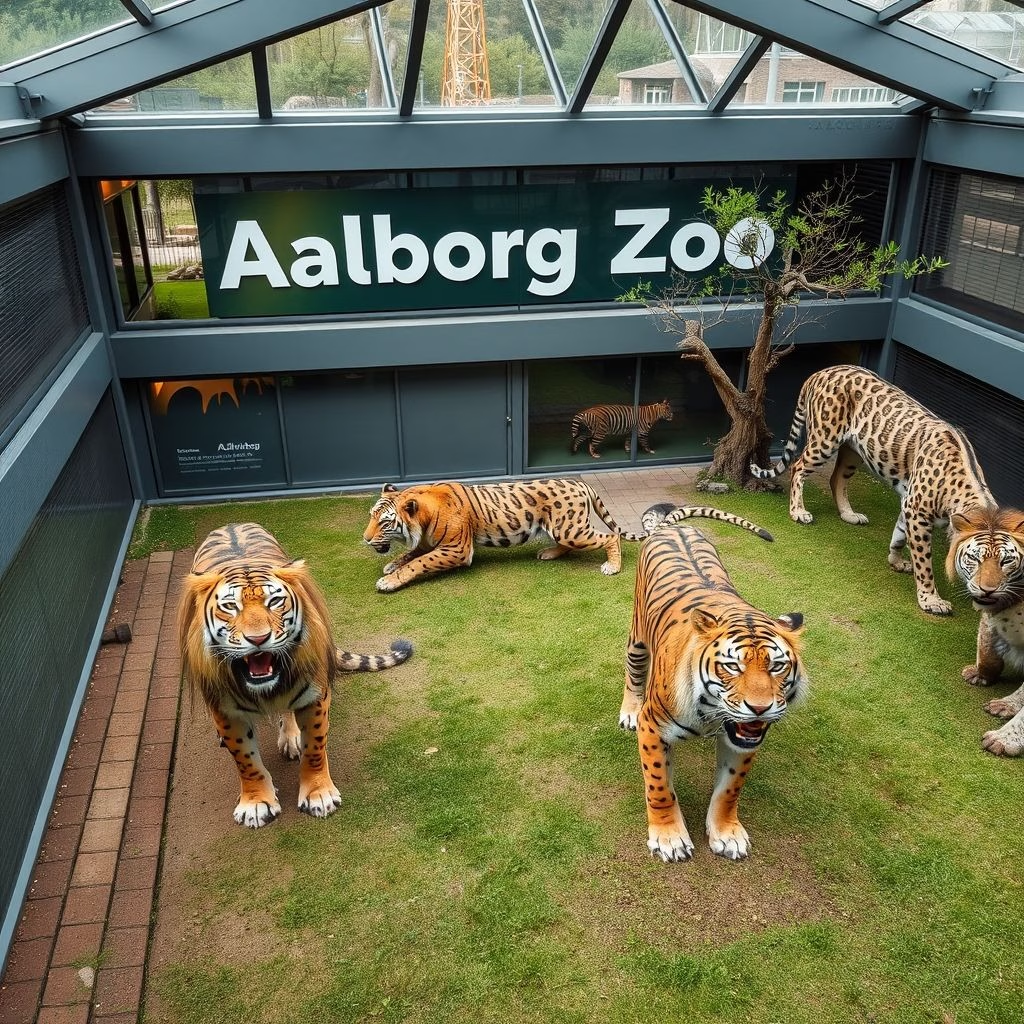Aalborg Zoo: Controversial Donations Feed the Predators

Aalborg Zoo: Feeding the Carnivores the Natural Way
Aalborg Zoo in Denmark is making headlines, not for new arrivals or conservation efforts, but for a rather unusual request: donations of healthy animals. The zoo is actively seeking contributions of small pets, such as chickens, rabbits, and guinea pigs, as well as horses. The purpose? To feed its resident predatory animals.
This initiative has sparked a significant amount of discussion, highlighting the often complex relationship between humans and animals. While the practice may seem shocking to some, Aalborg Zoo defends its approach by emphasizing its commitment to mirroring the natural food chain and ensuring the nutritional and behavioral enrichment of its carnivores.
How the Donation Program Works
The process is straightforward, albeit sensitive. According to the zoo, donated animals, whether the smaller pets or the larger horses, are “gently euthanized” by trained staff before being used as food. This is done to prevent any unnecessary suffering and to provide a controlled and humane end for the animals. Donations of smaller animals are accepted during the weekdays, with a limit of four at a time. For horse donors, the potential for a tax deduction is an added incentive, although the primary motivation is likely the perceived benefit to the zoo’s animals.
The zoo argues that this practice is in the best interest of the predators. Providing a diet that closely resembles what these animals would consume in the wild can improve their overall health, stimulate natural behaviors such as hunting and foraging, and enhance their overall well-being. This approach is part of a broader shift in modern zoos, which are increasingly focused on providing enriching environments for their animals.
The Controversy and Public Reaction
Understandably, the program at Aalborg Zoo has not been without its critics. Animal rights groups and concerned individuals have voiced their objections, questioning the ethics of the practice and raising concerns about the welfare of the donated animals. These critics argue that, regardless of the humane euthanasia process, the core principle of using one animal to feed another raises moral questions. Despite the criticism, the zoo maintains that the program aligns with their goals for animal welfare and mimicking natural behaviors.
The reaction from the public has been mixed. While some support the zoo’s efforts to provide a natural diet and enriching environment, others are uncomfortable with the idea of donating pets for this purpose. Social media and news outlets have been filled with comments and opinions, reflecting the diverse perspectives on this controversial topic.
Beyond the Headlines: The Bigger Picture
The debate surrounding Aalborg Zoo’s donation program highlights a broader discussion about the roles and responsibilities of zoos in the 21st century. Zoos are no longer just places to display animals; they are increasingly involved in conservation efforts, research, and education. Initiatives like the donation program force us to confront our feelings about animals, our relationship with them, and the ethical considerations involved in caring for them.
The situation also raises interesting questions about how we define animal welfare. What constitutes a good life for an animal in captivity? Is it a life free from the threat of predation, or is it one that allows for the expression of natural behaviors, even if those behaviors involve consuming other animals? These are complex questions that do not have easy answers.
The program at Aalborg Zoo in Denmark is a bold step, and whether you agree or disagree with it, it sparks a conversation. It forces us to consider the complexities of animal care and the sometimes difficult choices that zoos must make to ensure the well-being of the animals in their charge.
Looking Ahead
It remains to be seen how the public’s perception of the Aalborg Zoo program will evolve over time. The zoo’s willingness to be transparent about its practices and to engage in open dialogue about the ethical considerations involved will be crucial to its continued success. The initiative will likely continue to generate interest and debate, both within Denmark and internationally, as people grapple with the difficult questions it raises.
The actions of Aalborg Zoo highlight the importance of understanding and accepting the complex relationship between humans, animals, and the natural world.



